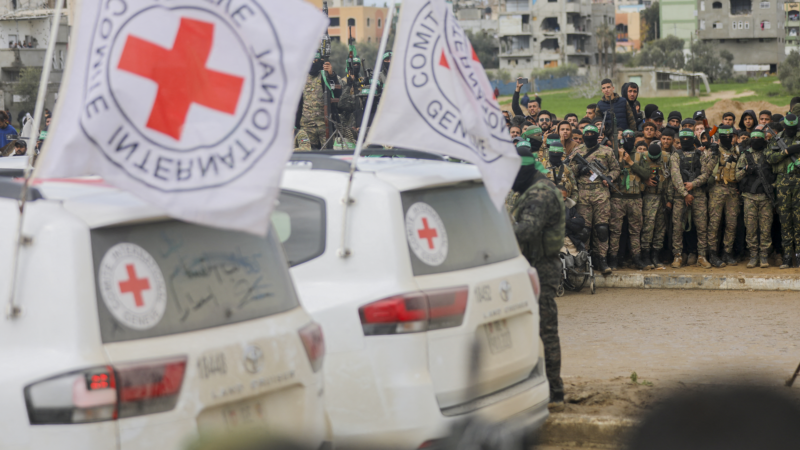Hamas rejects Israel’s request to extend phase one of Gaza ceasefire
TEL AVIV, Israel — The Palestinian militant group Hamas says talks must begin on the next phase of the ceasefire in Gaza, rejecting what it says was an Israeli proposal to extend the first phase of the ceasefire deal.
Israeli, Hamas and other negotiators were in Egypt on Friday to discuss the ceasefire. The Israeli delegation returned home from the talks Friday evening.
“Extending the first phase of the deal in the format that Israel wants is unacceptable to the organization,” Hamas spokesman Hazem Qassem said in an interview with Al Araby television.
Prime Minister Benjamin Netanyahu’s office did not have an immediate response to Hamas’ refusal of the extension.
Qassem accused Israel for the failure to begin negotiations on the second phase of the Gaza ceasefire which came into effect Jan. 19. The agreement, negotiated by Egypt, expires Saturday.
Under the terms of the deal, fighting won’t resume during the negotiations. Qassem claimed Israel wanted to get back the remaining 59 hostages still held in Gaza and then resume the war.
Hamas released 33 Israeli hostages, including eight bodies, under the current phase of the ceasefire in exchange for the release of nearly 2,000 Palestinian prisoners and detainees held in Israeli jails.
Phase two of the ceasefire deal would see the complete withdrawal of Israeli troops from Gaza and a commitment to end the war.
The war started after Israel suffered the worst attack in its history on Oct. 7, 2023, when Hamas-led militants attacked and killed nearly 1,200 Israelis and took 251 hostage.
Israel vowed to destroy Hamas, and over the next 15 months airstrikes and attacks killed more than 48,000 people in Gaza, destroying or damaging most of the buildings in the occupied territory.
The first phase of the ceasefire is ending as the Muslim holy month of Ramadan begins.
During the six weeks of the ceasefire, the United Nations has been able to deliver much needed basic goods, though residents in Gaza say they still don’t have enough food and medical supplies.
At a market in the Jabaliya refugee camp in north Gaza, Khalid Abu Sultan, 33, was trying to find affordable groceries for the meal he planned to prepare to break the daily Ramadan fast. But he said the prices were too high.
“Ramadan usually brings joy and delight, but this year it will be bleak,” Abu Sultan said.
Taiwan’s president pledges to defend island’s sovereignty after Chinese military drills
Taiwanese President Lai Ching-te vowed to defend the self-ruled island's sovereignty in the face of what he termed China's "expansionist ambitions," days after Beijing wrapped up live-fire military drills near its shores.
Deaths reported during widening protests in Iran sparked by ailing economy
The protests began due to economic pressures, with Iran's currency rapidly depreciating. Demonstrators have also chanted against the country's theocracy.
Congress failed to extend Obamacare subsidies. This Democrat says Trump can save them
Sen. Peter Welch, D-Vt., says he thinks the Senate can pass a "retroactive" Affordable Care Act subsidy extension, but "we need President Trump."
Rideshare union rights, social media limits and other state laws taking effect Jan. 1
Every new year, public media reporters across the country bring us some of the new state laws taking effect where they are. Here are six in 2026.
Guides to help you tackle your New Year’s resolutions
From building your strength to tackling credit card debt, NPR's Life Kit has a newsletter journey to help you tackle your New Year's resolution.
Guides to help you tackle your New Year’s resolutions
From building your strength to tackling credit card debt, NPR's Life Kit has a newsletter journey to help you tackle your New Year's resolution.






